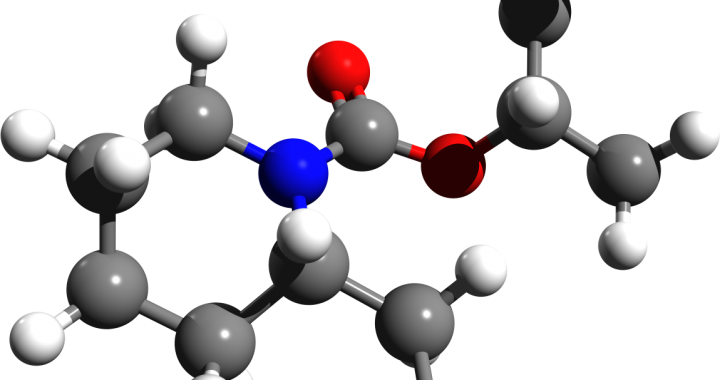
ANULOMANA
The pharmacological action which has the capacity to relieve the hindrances that are causing disturbance in the movement of VATADOSHA either by the method of metabolising or evacuating or both, thus leading to normalization of the movement of VATA DOSHA is to be understood as ANULOMANA KARMA. The pharmacological action that is described in MODERN SYSTEM is APERIENT and CARMINATIVE action of substances.
DETAILS OF THE ACTION
ACTION NAME
अनुलोमन
MODERN EQUIVALENTS
APERIENTS or CARMINATIVES
DEFINITION
DEFINITION
EXPLANATION/MEANING
REFERENCE
The reference is from Sharangadhara Samhita (शा. स.) respectively
SYNONYMS (IF PRESENT)
SYNONYMS
NONE
EXPLANATION/MEANING
NONE
REFERENCE
NONE
MODE OF ACTION / PHARMACODYNAMICS
AYURVEDA EXPLANATION
The word ANULOMA is described as the direction of the movement of VATA DOSHA which becomes the most important perspective to analyse and understand the action ANULOMANA. The word ANULOMA refers to the direction to which the body hairs are pointing. LOMA refers to body hairs while the prefix ANU refers to the ‘in line’ direction of movement and the classical references denote that the DOSHA which moves in ANULOMA direction is VATA DOSHA. Thus the substance that tends to normalise the movement of VATA DOSHA is said to be ANULOMANA.
The VATA DOSHA usually loses its normal direction when its pathway is blocked (मार्गावरोध or आवरण) or vitiated by loss of tissues (धातुक्षय). In the present context when we analyse the definition, the substances with ANULOMANA action deals with the condition of abnormal movement of VATA DOSHA caused due to the blocked pathway.
The action ANULOMANA is resulted when the cause of block is removed by metabolising it and controlling the movement of VATA DOSHA by normalising it.
As the activity facilitates the normalcy of VATA DOSHA movement, especially with respect to the excretory function, this is considered to be a variety of VIRECHANA (Purgation) along with SRAMSANA, BHEDANA & RECHANA but of a mild nature.
The properties that are necessary for purpose of ANULOMANA action is लघुगुण (Light), उष्णगुण (Hot), तीक्ष्णगुण (Penetrating), स्निग्धगुण (Unctous), अम्लरस (Sour), लवणरस (Salty), उष्णवीर्य (Hot) and अम्लविपाक (Sour metabolite). These properties facilitate digestion and removal of the blocks and evacuation of contents.
MODERN EXPLANATION
The most common correlation given to the Action is Carminatives. Some even consider it to be a mild laxative as its definition states that it facilitates evacuation of MALA (Metabolised or digested matter).
Aperients are defined as that class of substances that aid in digestion, increase bowel movements and prevents constipation. The Aperient are usually considered under very mild laxatives especially the osmotic laxatives. The Osmotic laxatives absorbs water from the surrounding areas into itself and pass it to the hard stools making it soft and facilitating it to be excreted.
Carminatives is defined as an agent that prevents or relieves flatulence. This may have the effect of relieving colic pain caused due to flatulence (https://www.medicinenet.com/script/main/art.asp?articlekey= 24293). The substances that exhibit the activity help in expulsion of flatulence or gases from the GI tract along with a feeling of wellness, warmth, relief and comfort. Thus it will indirectly result in increase of appetite. These substances increase Gastric emptying and is also mildly irritating in nature which further facilitates gastric emptying due to increase in the peristaltic movement. This leads to expulsion of gases, mechanical digestion and more important the bye products are excreted. The action is usually seen with substances that contain high amount of volatile oils.
INVESTIGATIVE PARAMETERS TO ASSESS
Sl. No.
CATEGORY OF PARAMETER
INVESTIGATION NAME
TYPE OF INVESTIGATION
1.
NOT YET COMPILED
NOT YET COMPILED
NOT YET COMPILED
LIST OF PLANTS THAT EXHIBIT THE ACTION
Charaka even though has not mentioned this activity separately, but has used frequently in relevant circumstances. The term ANULOMA is being used as the normal direction for the movement of VATA DOSHA very frequently.
SANSKRIT NAME
1. हरीतकी
2. यवानी
3. हिंगु
4. जीरक
BOTANICAL NAME
Terminalia chebula Retz
Trachyspermum ammi (L) Sprague
Ferula asafoetida Linn
Cuminum cyminum L
PART USED
Fruit
Fruits/Seeds
Oleo Gum Resin
Fruit/Seeds
RESEARCH PAPERS ON THE PHARMACOLOGICAL ACTION
Sl. No.
1.
2.
TITLE OF THE PAPER
LAXATIVES
ROLE OF ANULOMANA DRAVYA IN THE MANAGEMENT OF PUREESHAVRUTA VATA – A REVIEW
PUBLISHING JOURNAL
Stat Pearls
International Journal of Botany Studies
CITATION
Dhulappa Mehatre. ROLE OF ANULOMANA DRAVYA IN THE MANAGEMENT OF PUREESHAVRUTA VATA – A REVIEW International Journey of Botanical Studies (ISSN 2455-541x). Volume 1 Issue 1. January 2016. pg 07-09.



Good video.Looking for more videos on Dravyaguna principles.
Thanks for the same. You can subscribe to my youtube channel also which will be hosting this. Regards
Thanks for the comments.
1. हरीतकी Terminalia Chebula
2. यवानी Trachyspermum copticum
3. हिंगु Asafoetida
4. जीरक Cumin
what are these botanical names?
For Haritaki and Yavani you have already written yourselves and as for Asfoetide it is Ferula narthex and Jeeraka it is
Cuminum cyminum
Thank you
Thanks once again for showing the mistake an error which has happened during the editing. Will do the changes. Regards
regards.
isnt Cyperus rotundus an anulomana?
Thanks for your thoughts and insights. Strictly speaking yes. But the main action is Grahi where the anulomana is resulted due to the action Grahi. It is also deepana in action too which is an aid for the action grahi. Hence being grahi, the ama is digested by Musta which will result in proper functioning of the digestive system. As a result the Anulomana occurs.
thank you very much for explanation